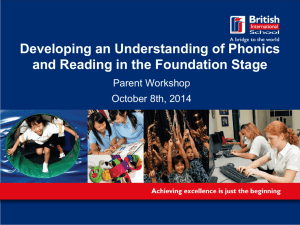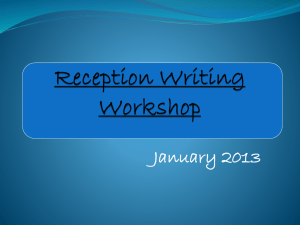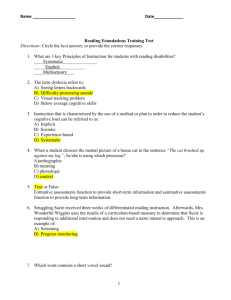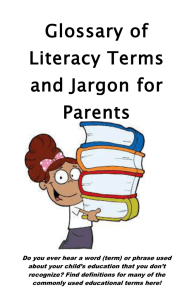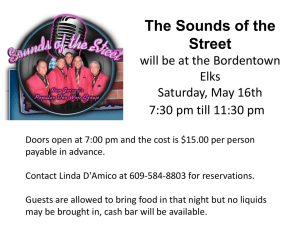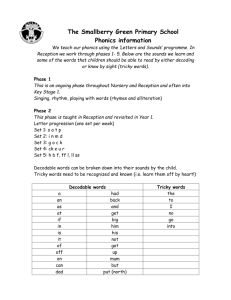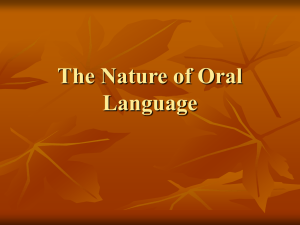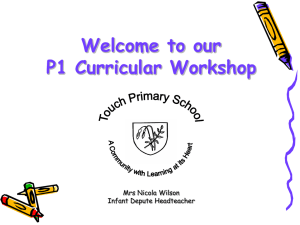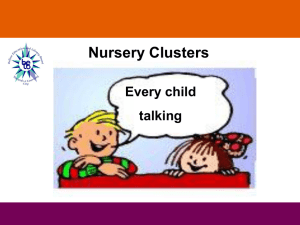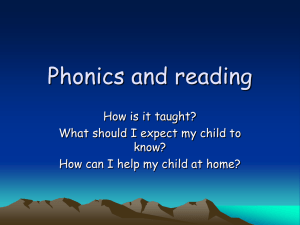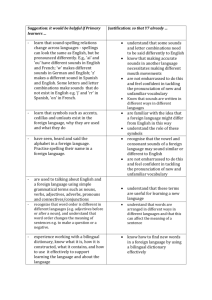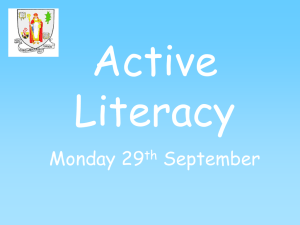Literacy in Reception Reading ELG
advertisement
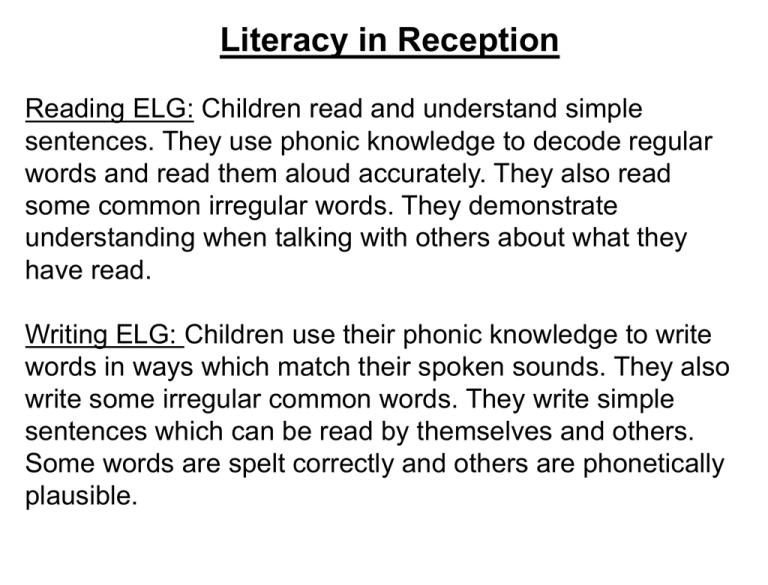
Literacy in Reception Reading ELG: Children read and understand simple sentences. They use phonic knowledge to decode regular words and read them aloud accurately. They also read some common irregular words. They demonstrate understanding when talking with others about what they have read. Writing ELG: Children use their phonic knowledge to write words in ways which match their spoken sounds. They also write some irregular common words. They write simple sentences which can be read by themselves and others. Some words are spelt correctly and others are phonetically plausible. Letters and Sounds During the Foundation Stage your children are taught how to read and write using the Letters and Sounds teaching programme. There are 6 phases in total, phases 1 - 4 are taught in Reception Phase 1 This supports the development of speaking and listening skills, which are crucial for children to make a good start on reading and writing. Children are encouraged to 'tune in' to different sounds and experience a variety of language and talking opportunities. Phase 2 Most children in the Reception Year will be working through Phase 2 and beyond, but this depends entirely on their particular level of development. This phase introduces children to letters and the sounds that they make. We call this 'Phonics'. Let's explain...... Phoneme - the smallest unit of sound in speech Grapheme - the written representation of a phoneme. Graphemes can be made from 1, 2 3 or more letters working together to make one sound. The children are taught to give the sound when shown the grapheme (written letter) and to find the grapheme when given the sound. Children are taught how to • blend sounds together (c - a - t = cat) • segment words (cat = c - a - t) These are the skills they need for reading and writing. Listen to the 42 letter sounds spoken in British English. Each letter sound is clearly spoken twice, before an example word is given. Perfect for parents Click on the link below http://youtu.be/-ksblMiliA8 High Frequency Words Children are taught to read high frequency words. Some can be de-coded (and) and some are 'tricky' (to, the) Children will bring home a mixture of decodable and tricky words in a word packet. If you can't say it, can you write it? What skills do you think children need to be writers? Being aware of their own bodies Self-confidence Experience of mark making Something to write about (a purpose for writing) Examples of developmental writing stages can be seen at the end of this document in the new year (2015) Handwriting Children are taught the correct formation of each letter shape using the order from the 'Letters and Sounds' programme. Please do not use capital letters inappropriately.
